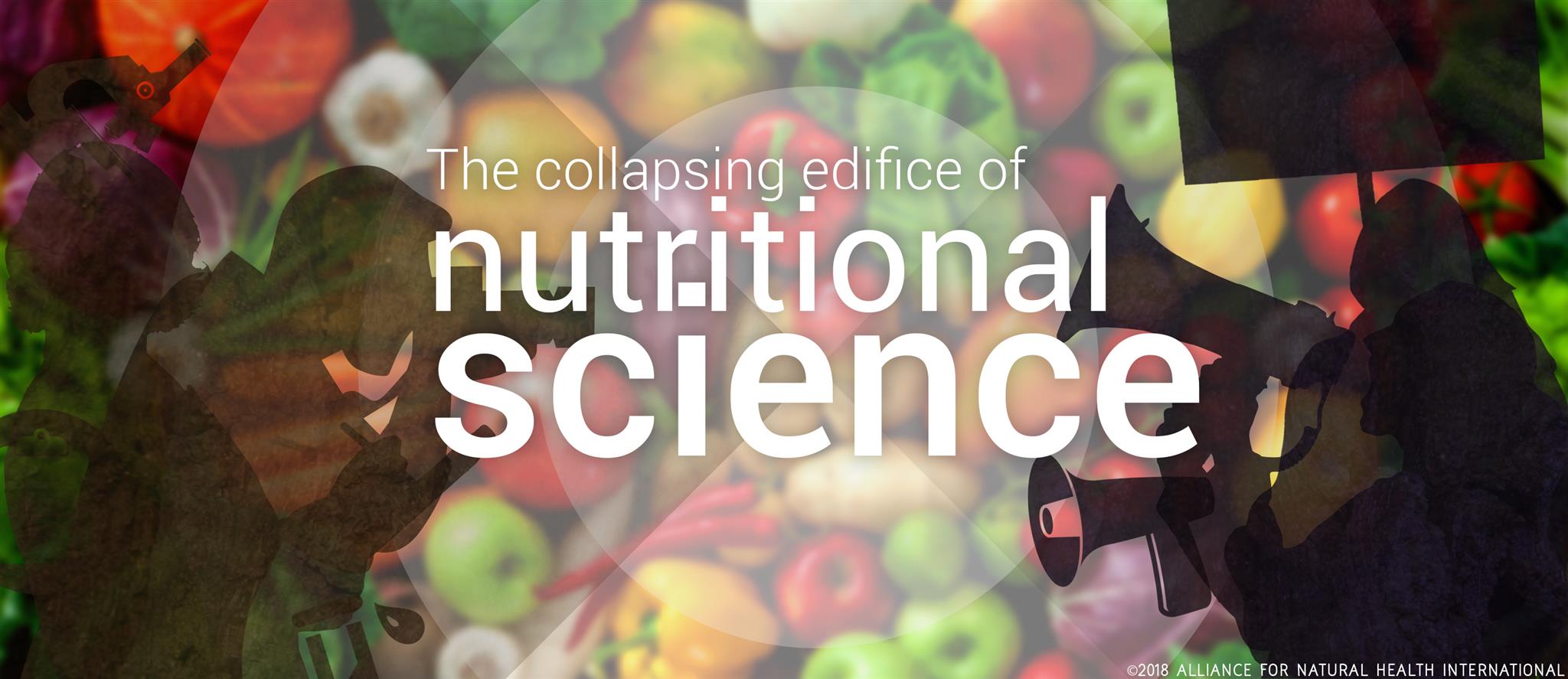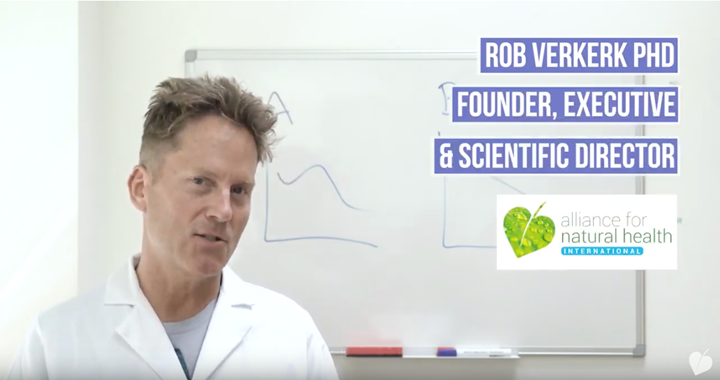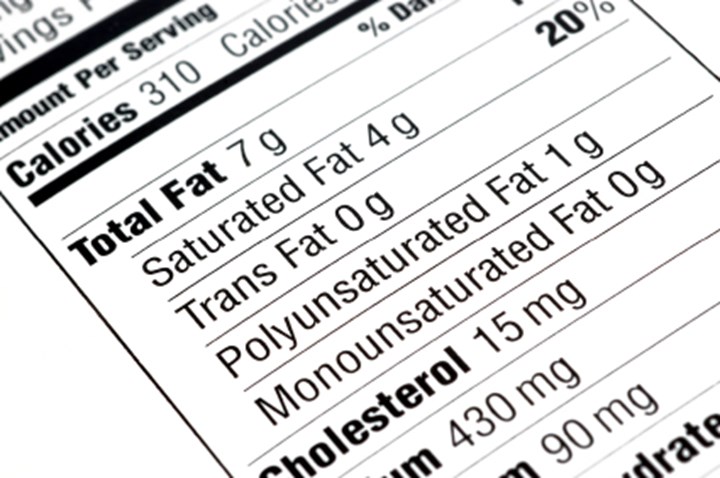Content Sections
By Robert Verkerk PhD, scientific and executive director, ANH-Intl
The Journal of the American Medical Association (JAMA) - armed with an opinion piece scribed by eminent Stanford University professor, Dr John Ioannidis, has landed a devastating blow into the heart of the nutritional epidemiology community.
This community represents a group of highly influential nutritional epidemiologists, including Walter Willett and Dariush Mozzafarian, whose output forms the basis of government ‘healthy eating’ guidelines, especially in Western nations. These include MyPlate in the USA, the Eatwell Guide in the UK, PNNS in France, the Nutrition Circle in Germany and the Australian Dietary Guidelines. They all follow a similar tack that includes eating plenty of starchy carbs and limiting fats. Some like the German guide, mention the importance of avoiding burning foods to reduce the formation of carcinogenic byproducts.
Pincer movement closes in
These guidelines are coming under increasing pressure in what amounts to a pincer movement. You, dear reader, may well be a member of one or other of these groups, either side of the pincer. On one side, there’s a rapidly growing grassroots presence that is noted through burgeoning health blogs and social media posts. Many have seen fit to challenge the guidelines pushed on the public by governments because they found they were getting sick or obese when they ate in the manner suggested by their governments. When they made significant changes, such as going low carb, gluten-free, or anti-inflammatory, to name just three types of diet that are at odds of carb-loaded, low fat government guidelines, they got better. It was their personal experience that made up their mind. Nutritional epidemiologists of course argue that that it’s too early to tell if these diets are safe in the long-term. These attitudes then drive flawed studies such as the recent Lancet Public Health study we dismantled last week.
The other side of the pincer is comprised of experts, including doctors, other clinicians and scientists. Ioannidis is one of many, myself included. He is of course among the most influential and outspoken and it’s highly significant that he’s got his latest critical opinion piece published in JAMA.
In scientific circles, Ioannidis became something of a household (laboratory?) name after showing that most published research findings are false back in 2005. Since then, he’s become something of a gatekeeper of good science and he’s increasingly diverted his energies to the biomedical and nutritional sciences which he rightly feels needs a good shake up. Research, asserts Ioannidis, is amidst a credibility crisis.
What’s wrong with the studies governments rely on for their advice?
In his latest attack, Ioannidis goes after nutritional epidemiology that relies heavily on a category of observational evidence based on prospective cohort studies. He argues, in common with many of our own arguments, that:
- The authors frequently misrepresent association for causation
- They wrongly assume the things that people eat most (e.g. carbohydrates, fats) have the greatest influence on outcomes such as heart disease, cancer or death
- Meta-analyses on which nutrition epidemiologists are heavily reliant, become nothing more than “weighted averages of [specific] expert opinions”
- Relatively uncommon chemicals (e.g. contaminants, pesticides, carcinogenic byproducts from over-cooking red meat) may be influential but are generally ignored
- All of the variation between one (healthy) cohort and another (diseased) may represent “almost exclusively the magnitude of the cumulative biases in this type of research, with extensive residual confounding and selective reporting”
- Inherent variability between individuals resulting from genetic and environmental factors makes irrelevant the average perceived responses from average cohorts in large prospective studies
- Findings are not only often misinterpreted by the authors, they are misrepresented further by the media. Since exposés by the likes of Drs Marcia Angell and Peter Gøtzsche, the cat is properly out of the bag in terms of pharma manipulation of the science on which its business model is reliant. A key driver is inevitably Pharma’s support of the mass media. Big Pharma currently provides around US$6 billion annually to the US media in advertising revenues alone.
Ioannidis concludes that full-scale reform is the only option as nutritional epidemiology just isn’t up to the task. He says, “Disentanging the potential influence on health outcomes of a single dietary component from these other variables is challenging, if not impossible.”
New types of clinical research needed
One solution proposed by Ioannidis is that researchers make their raw data publicly available so that other researchers can number crunch it and compare results. It’s a good way of trying to root out data manipulation, but only if the original data is reliable and has itself not been subject to tampering. Transparency at all levels is always good - especially when we’re talking about public health. But you can imagine some funders with vested interests may have a different view on disclosure. That won’t just be limited to private funders. It could also include government funders whose unspoken mission is often to maintain the corporatocracy in which just 147 corporations control 40% of global trade.
The words of retired Vice Chancellor BM Hedge written in the British Medical Journal back in 2005 are as true today as they were the day they were written: “The world runs on a curious logic of consumerism today. Any commodity that could be sold will make the world rich. Drugs and pharmaceuticals are no exception here. Doctors today have become sellers and the patients the buyers.”
Elsewhere, Ioannidis has made interesting noises in the peer reviewed literature that suggests clinical research still has a place. That’s however only on the condition it conforms to the principles of good science. As ever, the Stanford professor is critical of most existing clinical research. This is no surprise given so much of it has been conducted to promote drug sales and bolster the profits of the pharmaceutical industry.
But he says if clinical research can meet specific criteria that he describes in some detail, it may once again be valuable. This is at odds with the classic, establishment view, propagated by pharmaceutical interests, that suggests that randomised controlled trials (RCTs) and systematic reviews or meta-analyses of these, are the only proper gold standards. Ioannidis proposes the criteria be selected by asking some pertinent questions:
- Problem base: Is there a health problem that is big/important enough to fix?
- Context placement: Has prior evidence been systematically assessed to inform (the need for) new studies?
- Information gain: Is the proposed study large and long enough to be sufficiently informative?
- Pragmatism: Does the research reflect real life? If it deviates, does this matter?
- Patient centeredness: Does the research reflect top patient priorities?
- Value for money: Is the research worth the money?
- Feasibility: Can this research be done?
- Transparency: Are methods, data, and analyses verifiable and unbiased?
Ioannidis also shatters the notion that big money is the only way forward - a predicament that has played in the hands of the Big Pharma, Big Food and pro-pharma foundations such as the Bill and Belinda Gates Foundation (incidentally a funder of a considerable body of nutritional epidemiological research). He states: “Altering our approach could easily produce more clinical research that is useful, at the same or even at a massively reduced cost.”
There is no doubt that the combined assault on bad science has shaken the established, drug-dependent healthcare system to its core. You’d have to be blinkered, ignorant or an industry shill to suggest its credibility is not in tatters. Now, with a helping hand from Prof Ioannidis and others, the scientific foundations of nutrition - one of the most powerful non-drug based healthcare modalities - has been equally shaken.
Our contribution: roll on September!
We are excited to be launching soon two particular collaborative projects, namely the Hawthorn Health Collaboration and our sustainable health system blueprint.
The timing couldn’t be more serendipitous - just as the ‘corporatocratic beast’ has sustained such devastating blows. There’s also the spectre of an even more troubled UK National Health Service (NHS) given the increased likelihood of a Brexit ‘no deal’. These blows and challenges may not be fatal, but they should at least inspire fundamental reform and create new opportunities for research and clinical practice that are meaningful and of value to the people, rather than the corporations.
Stay tuned in September!
Back to Sustainable Healthcare campaign








Comments
your voice counts
29 August 2018 at 11:50 pm
Welcome to the post truth society. Or is the the lie management technocracy?
The intention I see is to construct and enforce a technocracy globally.
Health 'management' systems are part of that rollout as is smart energy meters.
The human based system and human interference in the system - discounting of course its controllers is being replaced.
The global rollout of all the infrastructure over the last few decades is evidence of the highest top down power to do so - and regardless of apparent cultural or political differences.
Our presumption that wars are intended to be won, disease is intended to be cured, poverty is intended to be eradicated & etc is wishful thinking or rather, naive presumption that we all follow the same 'rules', motives or share the same core view of humanity or the world we live in.
Of course money is a leverage in the acquisition of power - but it will be replaced with energy credits.
If I am over exaggerating or mistaken, please show me I am mistaken.
If truth is merely utility, then run the world as a 'utility'.
Live this day well!
30 August 2018 at 7:17 am
Well done ANH, this is the most exciting news for decades !
03 September 2018 at 5:35 pm
Counting down the days! All the more reason to encourage a sick and confused public to put the traditional, wholesome foods that kept countless generations of our ancestors healthy, back on their tables.
10 September 2018 at 12:15 pm
Absolutely!
Warm Regards
Melissa
Your voice counts
We welcome your comments and are very interested in your point of view, but we ask that you keep them relevant to the article, that they be civil and without commercial links. All comments are moderated prior to being published. We reserve the right to edit or not publish comments that we consider abusive or offensive.
There is extra content here from a third party provider. You will be unable to see this content unless you agree to allow Content Cookies. Cookie Preferences